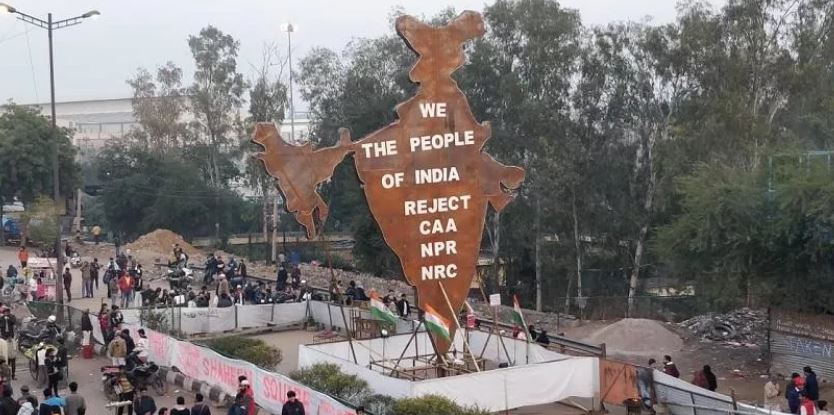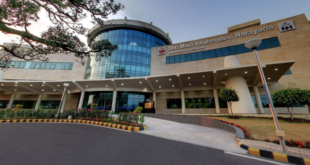
Abdul Hayee
Lauding the women protesters of Shaheen Bagh, Azad said, “Because of you, there are many Shaheen Baghs in the country now. But we need at least 1 lakh Shaheen Baghs across the country as the government is making attempts to derail the movement.” Criticising the government for not having a dialogue with protesters of Shaheen Bagh, Azad said, “If the Prime Minister can do his ‘Mann ki Baat’ then why is he not listening to the mann ki baat of the women of Shaheen Bagh?” The sit-in agitation in Shaheen Bagh entered Day 38 on Wednesday.
Also read: Imran Suggests Trump not to war with Iran
The apex court has sought a response from the Centre and will now hear the matter after four weeks. Since December 16, around 500 protesters have blocked the Delhi-Noida border at Shaheen Bagh near Kalindi Kunj to protest against the CAA and the NRC.
Since December, crowds across India have mobilized to protest against the government of Indian Prime Minister Narendra Modi, after it passed a law that many see as discriminatory against Muslims. In Shaheen Bagh, a working-class, majority-Muslim neighborhood, the protests began with a small, peaceful sit-in and candlelit vigil by local women. Most of them are first-time protesters. Some of them are students, some are matriarchs. There are young women with small children in their laps. There are great-grandmothers. There are artists and organizers, poets and singers. Sometimes they are angry, other times they laugh with abandon.
They take time off to pray, to go home and keep the kitchens functional. They return with determination. They know what the CAA-NPR-NRC (a new citizenship law, a population register, and a proposed one of citizens) is about and videos of them explaining why it is wrong are viral on social and mainstream media. You need women, says veteran activist Medha Patkar and lead campaigner of the Save Narmada Movement, when the fight is going to be long and hard. “The specialty of a women-led movement is that they can be sustained longer. Women don’t give up,” Patkar says. India sees these women as shields, she says. “But in fact, they are the swords.”
Also read: Over 100 students to restart MBBS as counselling date announced
And India’s history shows it wouldn’t be the first time that women have helped keep the flame of protest burning. Chipko Movement, 1973, Anti-Nuclear Protests in Tamil Nadu, 1980, Bhopal Disaster, 1984, Narmada dam protests, 1985. Women in India will no longer be content being unicorns with self-made success stories meant to be emulated and inspirational. They are going to have faith in their regular lives and take on societal irregularities by staying together. There is no doubt that we are living in extraordinary times—the kind of moment when the best of humanity is pitted against the worst we are capable of. This is not a time to rest. It is a time to soak in the inspiration, to allow oneself to be led, to find one’s voice and use it to empower the collective.
 Jubilee Post News & Views
Jubilee Post News & Views




